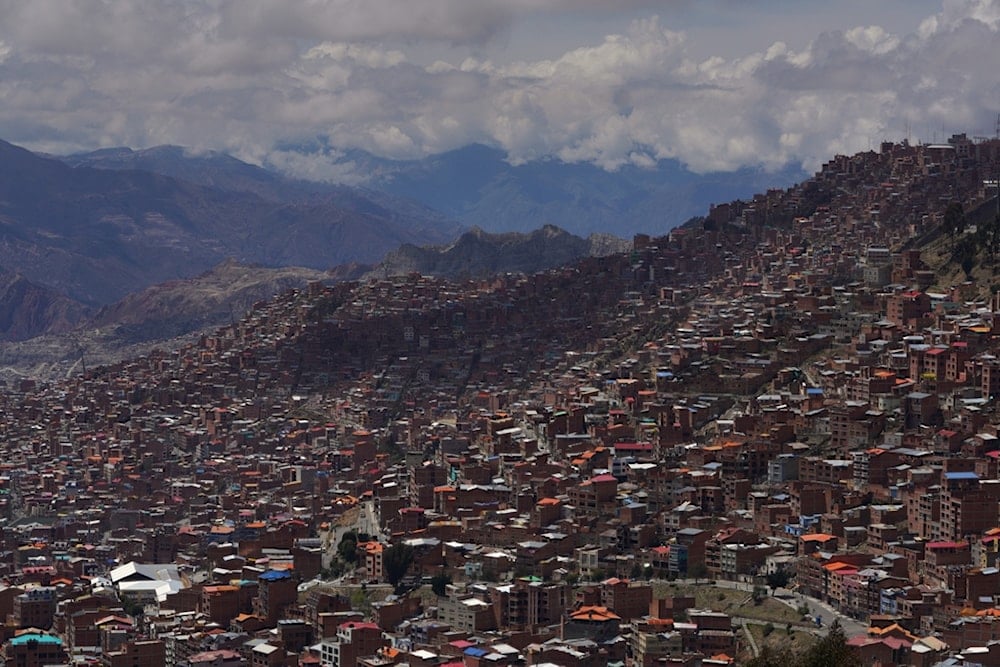Bolivia votes in presidential runoff amid deep economic strain
Bolivians voted in a calm presidential runoff on Sunday as the country faces a severe economic crisis, currency shortages, and growing US pressure over investment access to its vast lithium and energy resources.
-

Clouds hang over the mountains surrounding La Paz, Bolivia, during a presidential runoff election, Sunday, Oct. 19, 2025 (AP Photo/Ivan Valencia)
Bolivians went to the polls on Sunday for a presidential runoff that will determine the country’s next leader following months of political debate and economic strain. Voting in the capital, La Paz, proceeded peacefully, with limited vehicle movement and light police presence near polling stations.
"We urgently need change. The country has no foreign currency, no fuel; without this the country cannot move forward. Prices are rising. I understand that it won't be easy for a new government to solve this; we won't see change in one day, but I hope we are voting for improvements," Joshua, a voter in La Pazm, told RIA Novosti.
Another resident, Roberto, expressed similar views, saying that many citizens want to see "profound change for the better."
Speaking to RIA, Susana Maria Krebber Aguirre, a lawyer supervising one of the polling stations, said the process remained "calm," with visits from international observers and human rights officials. Families arrived together to cast ballots, some bringing children and pets.
Polling centers were scheduled to close at 4 p.m. local time (20:00 GMT), with preliminary results expected later in the evening.
Economic pressure and shifting alliances
The election follows an earlier round in August in which no candidate secured an outright majority. The two contenders, Rodrigo Paz, an economist representing the centrist Christian Democratic Party, and former president Jorge Quiroga, a conservative, have both campaigned on restoring investor confidence and strengthening relations with Washington.
Bolivia’s economy has deteriorated sharply over the past year, with foreign currency reserves at their lowest level in decades and growing dependence on fuel imports. The country’s main source of income, natural gas exports, has declined, while efforts to develop its vast lithium reserves have been slowed by political uncertainty and competing foreign interests.
Foreign Leverage
Analysts note that US policy has played an increasingly visible role in shaping Bolivia’s options. Following years of strained relations under leftist governments, both leading candidates have signaled a willingness to renew ties with Washington and attract US investment in the energy and mining sectors. American interest in Bolivia’s lithium reserves, among the world’s largest, has added to diplomatic pressure for regulatory reforms that would open the resource to private and foreign development.
At the same time, some Bolivian economists argue that dependence on external financing and dollar scarcity has left the country vulnerable to global financial shifts dominated by the United States. The shortage of hard currency has forced the central bank to restrict dollar sales, feeding inflation and undermining consumer confidence.
Read more: Paz, Quiroga advance to runoff after Left’s collapse in Bolivia
The winner, to be inaugurated on November 8 for a five-year term, will face the task of rebuilding the economy while balancing the demands of domestic reform and external influence.

 3 Min Read
3 Min Read










